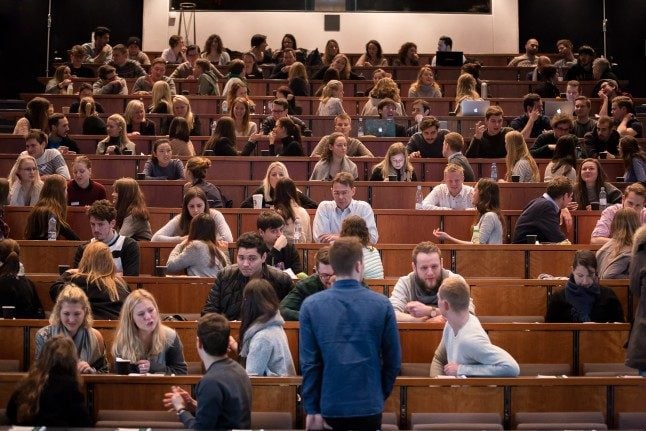Why Germany?
German higher education authorities have hailed a growth in the number of postgraduates coming from abroad to study in the country in recent years. The number of foreign researchers in German institutions reached a new high in 2011.
But with German universities becoming less competitive overall in global rankings, one might question why so many choose to come here for further study.
The German Academic Exchange Service (DAAD), an education ministry programme which provides support and information to foreign graduates, argues the main reasons to come here for a doctorate or masters degree are the low fees, excellent research environment, and the high standard of living.
Officials also make much of the German system's openness to foreign students.
Education ministry initiatives such as “Research in Germany: Land of Ideas” have tried to welcome more foreign postgraduates and authorities are keen to make Germany ever more attractive to academics from abroad.
“People who come here to study and feel welcomed will then want to come back later on as researchers,” DAAD President Margret Wintermantel said in a statement last week.
But prospective PhD candidates should be aware of how German doctorates work before packing their bags and heading abroad.
Individual or Structural?
The first hurdle to pass in starting a PhD in Germany is choosing either an individual or a structured doctorate programme.
An “individual” programme is the traditional form of a PhD in Germany and sees the student producing their thesis under the supervision of one professor.
It offers a lot of flexibility with a study period spread over three to five years, but it needs a lot of organization and initiative from students to get the work done.
“Structured” programmes, meanwhile, are modeled on PhDs at many universities in English-speaking countries, where doctoral students are put into groups, each with a team of academics to supervise them, often called the “thesis committee”.
Unlike the individual doctorate, structured programmes have set timetables, compulsory lectures and seminars and credit point assessments to fulfill, similar to undergraduate degrees.
Structured programmes at graduate schools are slowly becoming more the norm, according to the DAAD, with over 700 such doctorates on offer, many of them funded by the German Research Foundation (DFG).
Many of these structural programmes offer teaching in English, and most candidates finish their doctorate within three or four years.
Show me the money
Finance is a key selling point for post-grad study in Germany.
Unlike in the UK where students pay thousands a year in tuition fees and have a harder time netting government funds after their first degree, PhDs (like undergraduate degrees) are essentially free in Germany – at least for the most part.
Students have to pay a “semester contribution” when they re-enroll every six months, but this is only about €150 to €200. Nobody pays full tuition until after their first six semesters (three years).
Of course, students still need money for living costs, but a variety of organizations and programmes, including the DAAD, offer funding to outstanding international students. The DAAD said it funded 2,580 international doctoral students in 2008.
Generally these scholarship deals require excellent results in your first degree and sometimes extra qualifications like work experience, specific research goals, or even special political or social affiliations. Many have made details available on online funding databases.
Alternatively, PhD students are often hired as paid research associates by their university or by independent research centres and many choose to take on part time work, although this can conflict with working restrictions placed on students from outside the EU.
Useful websites



 Please whitelist us to continue reading.
Please whitelist us to continue reading.
Member comments